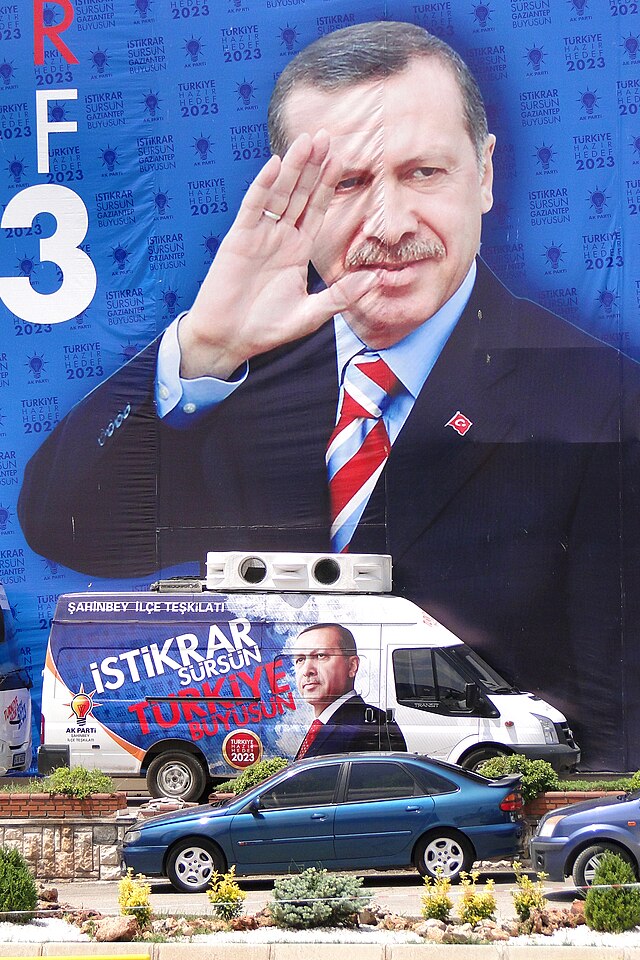In sudden shift, Erdogan greenlights Sweden’s NATO entry

A presidential campaign poster for Recep Tayyip Erdogan, who was successfully reelected in May 2023.
Jonah Carlson - In mid-July, in a shift that shocked many international observers, President Recep Tayyip Erdogan of Turkey said he would send a request to parliament to approve Sweden’s entry into NATO. In doing so, he streamlined and accelerated Sweden’s ascension to the alliance. Chris Megerian, Seung Min Kim and Karl Ritter discussed the comments and their repercussions, as well as NATO’s recent announcements at the Vilnius summit, in a recent article with the Associated Press.
As discussed in my essay on Sweden and Turkey’s geopolitical codes in June, a state’s geopolitical code – the way it selects to situate itself, with allies and adversaries, in the international space – is heavily influenced by its domestic politics. A country’s leader must be able to convince their citizens that their geopolitical code makes sense and is good for the country. The presence of Kurdish militants in Sweden, a contentious topic in Turkish politics, was a major stopping point in discussions over Sweden’s NATO ascension. However, now that President Erdogan has secured his reelection, and with it another five years in office, it appears that the question of Sweden has ceased to bother him significantly. This demonstrates the importance of election cycles in international affairs. On occasion, political figures will hold off controversial or unpopular decisions until their position in power is secured. This is especially true in democratic systems, where popular opinion plays a critical role in determining who wields executive authority.
A huge question regarding new NATO members is that of material power. Finland and Sweden selected to apply to NATO because they believe the material power associated with the alliance can both deter and defend against a potential Russian invasion. However, critics of expanding the alliance question what new states will bring to the NATO fold. Many European states struggle to hit, or are simply reluctant to hit, the requirement to spend at least 2% of national GDP on their defense. This has led some critics of the alliance, both in Washington and in European capitals, to perceive European states as overly reliant on the promise of US defense.
Photo source. Adam Jones from Kelowna, BC, Canada, CC BY-SA 2.0

